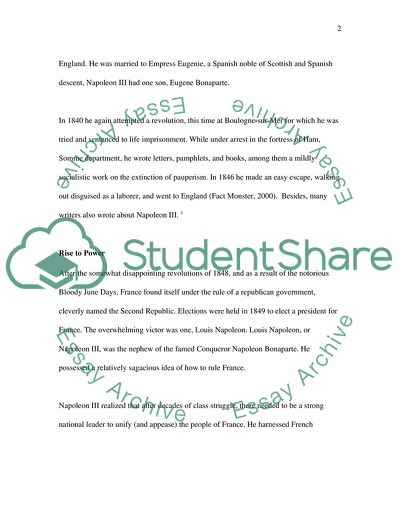Cite this document
(Napolon III Emperor of the French Assignment Example | Topics and Well Written Essays - 2000 words, n.d.)
Napolon III Emperor of the French Assignment Example | Topics and Well Written Essays - 2000 words. https://studentshare.org/history/1705623-the-reign-of-napoleon-iii-louis-napoleon-not-napoleon-bonaparte
Napolon III Emperor of the French Assignment Example | Topics and Well Written Essays - 2000 words. https://studentshare.org/history/1705623-the-reign-of-napoleon-iii-louis-napoleon-not-napoleon-bonaparte
(Napolon III Emperor of the French Assignment Example | Topics and Well Written Essays - 2000 Words)
Napolon III Emperor of the French Assignment Example | Topics and Well Written Essays - 2000 Words. https://studentshare.org/history/1705623-the-reign-of-napoleon-iii-louis-napoleon-not-napoleon-bonaparte.
Napolon III Emperor of the French Assignment Example | Topics and Well Written Essays - 2000 Words. https://studentshare.org/history/1705623-the-reign-of-napoleon-iii-louis-napoleon-not-napoleon-bonaparte.
“Napolon III Emperor of the French Assignment Example | Topics and Well Written Essays - 2000 Words”. https://studentshare.org/history/1705623-the-reign-of-napoleon-iii-louis-napoleon-not-napoleon-bonaparte.


